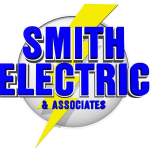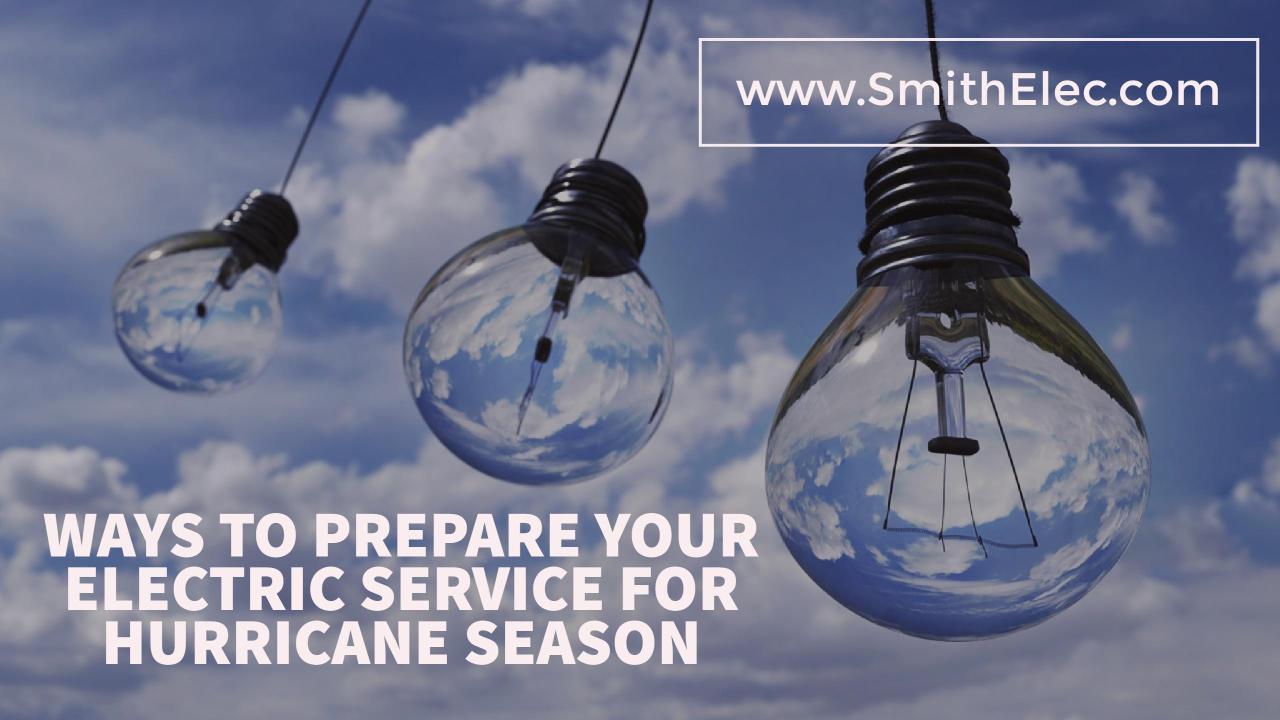Beginning in June, the hurricane season is a time of watching and worrying for those on the coastal regions. While we can’t prevent storms, we can be ready for them. There are several things you can do now to make it easier to respond quickly if the need arises.
Know where to shut off your power if you decide to leave. In most cases, this is the main breaker in your panel. Some homes have an access or disconnect outside the home. Just be aware of the location, and if you do decide to evacuate, shut off the power before leaving. You may need to take any frozen foods with you, to be used right away or as they thaw. Properly packed, they will last for several days, and thaw gradually, so you can cook or prepare them in the order they need used.
A whole house or stand-by generator is a great way to be prepared. This generator is set up on a transfer switch, which senses the loss of power and immediately kicks on to keep power to the home. This is important if you have medical equipment, for which the loss of power can be a life-threatening issue. This unit is sized to allow you to use most or all the electric appliances in your home with no noticeable change in habits. It is usually tied to a fuel source, whether it is tied to the natural gas supply, a propane or diesel tank, or solar and wind. In many cases, with an extended time away, the fuel supply may run out. Generators, especially large ones, do use a considerable amount of fuel. You may want to set them up to come on a few hours a day, just to keep the frozen food frozen, and give you a few hours of the day to do any laundry or other chores, while stretching the fuel.
If you can’t afford a large whole-house unit, consider a smaller unit, just to keep the basics operational. There are two ways to set up a small generator. One is to use a transfer switch and set up only the most important items, such as medical needs, freezers, and refrigerators to be powered by the generator. This requires a subpanel. If you have the capacity, it is also nice to have hot water. The other way to use a smaller generator is to keep it physically separate from the home, and use an extension cord or two to put the power where you need it. Remember that if you are using it in this fashion, you still need it outside, in a vented garage or carport area where the fumes can escape.
Smith Electric has skilled electricians standing by to assist in the installation of your generator. We understand the needs of our customers, and the challenges that living on the Gulf Coast bring. We can help you get your home into the best possible situation, and give you the peace of knowing your options if something does head your way. Give us a call today!
We are licensed to operate in Alabama, Mississippi, Florida, and Georgia and have been proudly serving the Gulf Coast since 1992. Call us for 24-hour emergency service at 251-471-4723! Visit us online at www.SmithElec.com and connect with us on Facebook and Twitter!

